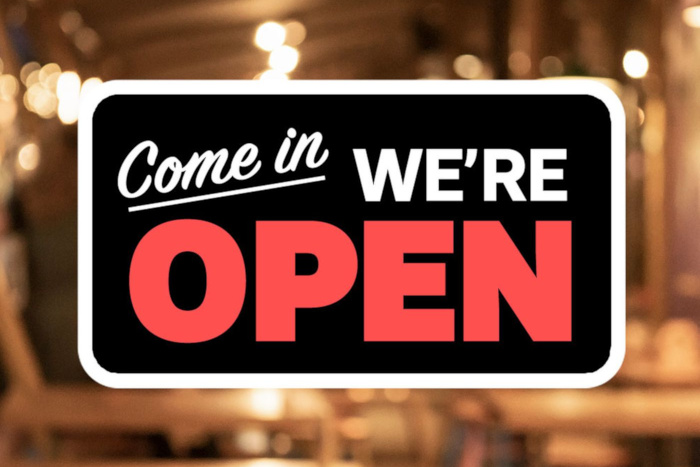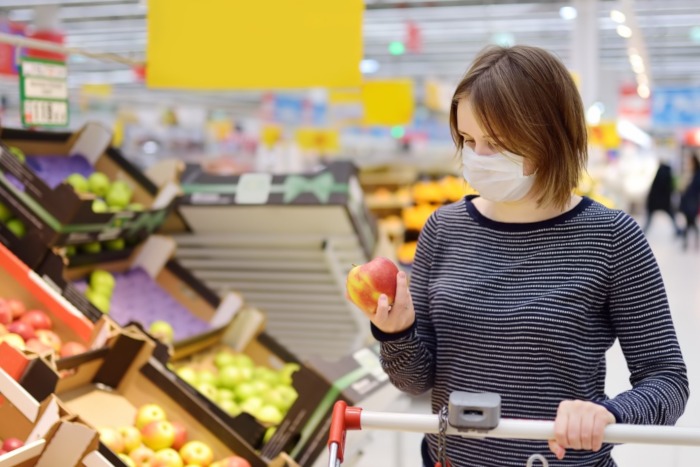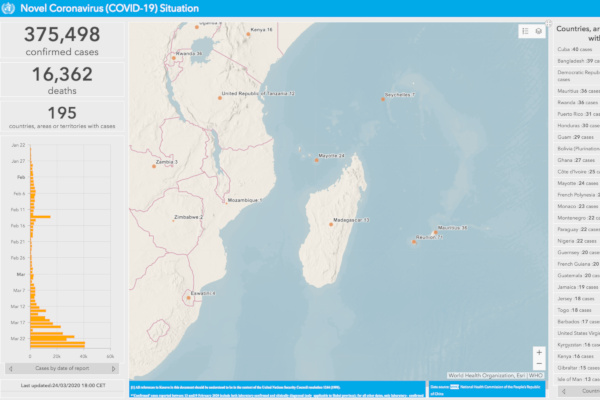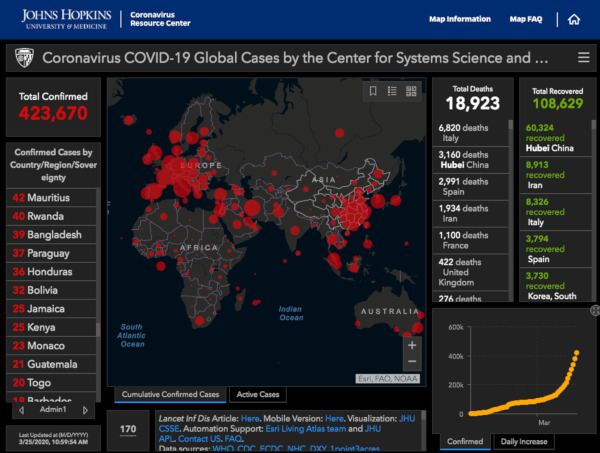
Christina and I have been thinking a bit about how to make sure people respect social distancing when supermarkets open in a few days. Here is what we have come up with and which we have shared with a few key people:
Opening supermarkets again
Mauritius is currently under tightened lockdown and all supermarkets are currently closed. As a result, some households are running out of food stocks. Consequently, Government is considering re-opening supermarkets as from 1st April 2020. An important issue is how to minimise the risk of transmission of the coronavirus due to concentrations of people in the supermarkets.
A number of studies have shown that one of the strategies to decrease risk of transmission of the coronavirus is social distancing. The objective of this proposal is thus to provide for a process to minimise the number of customers in a supermarket at any given time.
This requires having a process for the management of bookings for shopping slots as well as a process to be followed by customers while they are within the supermarket and doing their shopping.
One solution for the booking process
Under the previous system, the 9:00 – 10:00 slot was reserved for senior citizens and the disabled and Government may choose to maintain this.
For the other slots as from 10:00, the following method, which has as objective to reduce the number of people in the supermarket in any given time, may be used.
A slot is a period of one hour to be spent for doing shopping in a supermarket. This period of one hour includes arriving at the control point of the supermarket, getting inside the facility, doing the shopping, proceeding to the cashier, paying and leaving the premises.
The number of people allowed during one slot of one hour will depend on a number of factors. For example, a large supermarket can accommodate more people at the same time compared to a smaller one. This means that, prior to the launch of the service, all participating supermarkets will have to register and indicate, after discussions and the approval from authorities, the number of clients they can accommodate concurrently.
People will be able to book a one hour slot in a specific supermarket using a mobile-friendly website where he/she will be asked for the following information: name, national identification number (NID), name of supermarket (to be chosen from a list) and the time slot (he/she will be shown slots with availability). This means that the system will work on a first-come first-served basis.
[An update following a comment: for those people who cannot access the website for one reason or another, it is also possible to call a phone number to do the booking. This means that there will be a call center where the operators will use the same website for booking slots on behalf of people calling.]
All bookings will have to be done at least one day prior to the date of shopping.
As soon as the person submits his/her booking request, the system will do a booking:
- the person will see a message indicating that a booking has been done in his/her name. The message will contain a unique code which the person will be able to keep (copy & paste) and share with the authorities in case of dispute. The system will record this code as one of the attributes of a booking.
- the system will record that this person (with this unique NID) has been allocated a slot to come to the designated supermarket at this given time. This list of people (containing NIDs together with all the other details of the person (including the code) will then be shared to the police and the supermarket to control entry. This means that people coming to the supermarket have to show their ID card.
The importance of the code is in case someone makes a slight mistake when entering his/her ID on the booking system. This code can be used as a secondary check to allow the person to get in the supermarket. The code will just have to be a relatively long (e.g. 8 digits) random number. This number does not need to be unique, only sufficiently random.
The system will not allow someone who has already booked a slot in one supermarket on a given day to do a second booking on the same day. This is to prevent people from monopolising access to supermarkets while also decreasing the risk for contracting and transmitting the virus.
The system will not ask the person to indicate the closest supermarket to his/her place of residence. This is because a person may need to do shopping for his/her elders and these may live in another locality.

One solution for the shopping process
An example of a slot is 13:00 – 14:00.
A person can decide to come a bit earlier in order to secure a parking spot but he/she will have to wait in a queue with a distance of at least 1m between each person. Everyone should wear a mask. People who come later than 13:00 will be allowed in but they will have to have finished by 14:00 (like all other people in the same slot).
Clients will have to go through security to be allowed in (to be provided by policemen or security staff). At the middle of the slot (e.g. 13:30), a speaker will announce that people should start proceeding to checkout. One quarter hour before the end of the slot (e.g. 13:45), the speaker will announce that everyone should proceed to checkout and anyone not having paid and left by 14:00 will have to leave their products at the supermarket, irrespective of whose fault it is.
People should be sensitised to the fact that 1 hour is short and that they need to be efficient and practical in their shopping if they want their shopping to finish by the end of the slot.
Given that the police and/or security has the list of people who are allowed in a slot, it is also possible to control people when they leave so as, for example, to check whether there is anyone still inside the supermarket at the end of a slot. But this is not a mandatory part of the process as it would require more personnel.
Additionally, the police and/or security can also exercise their discretion in case of, e.g., a technical problem at checkout causing a delay. For example, if there is a problem with the credit card payment system, it is obvious that people will have to wait longer (thereby possibly exceeding their 1h limit) and this can be exceptionally allowed, while allowing the next batch of people to enter the supermarket.
The implementation
The website with the functionalities described above will have to be developed. This can be done by the developers at the Government Online Centre and/or Mauritius Telecom working in collaboration with the community of developers in Mauritius. Hosting the website will have to be done at GOC. Proper coordination between all parties is essential for timely delivery and for strict compliance with all requirements. We are agreeable to be the coordinators between the various parties.
We are interested to receive constructive criticism on this proposal.
[Update: During a press conference on 31 March 2020 at 11:30, Government announced a number of measures for the opening of shops and supermarkets as from Thursday 2 April. These represent a vast improvement on the previous system. Having listened to the official announcement attentively, Christina and I asked ourselves a number of questions.]







